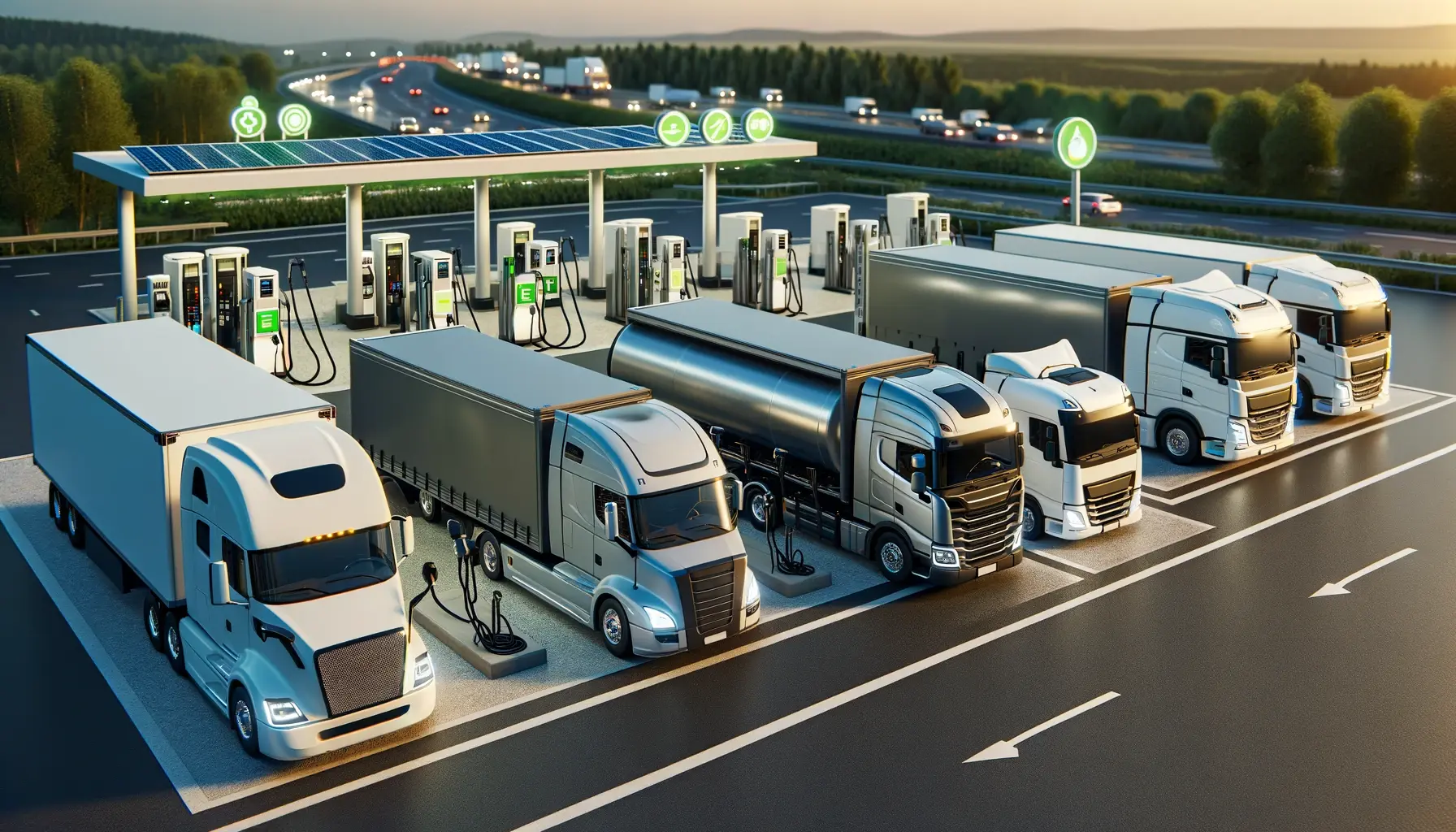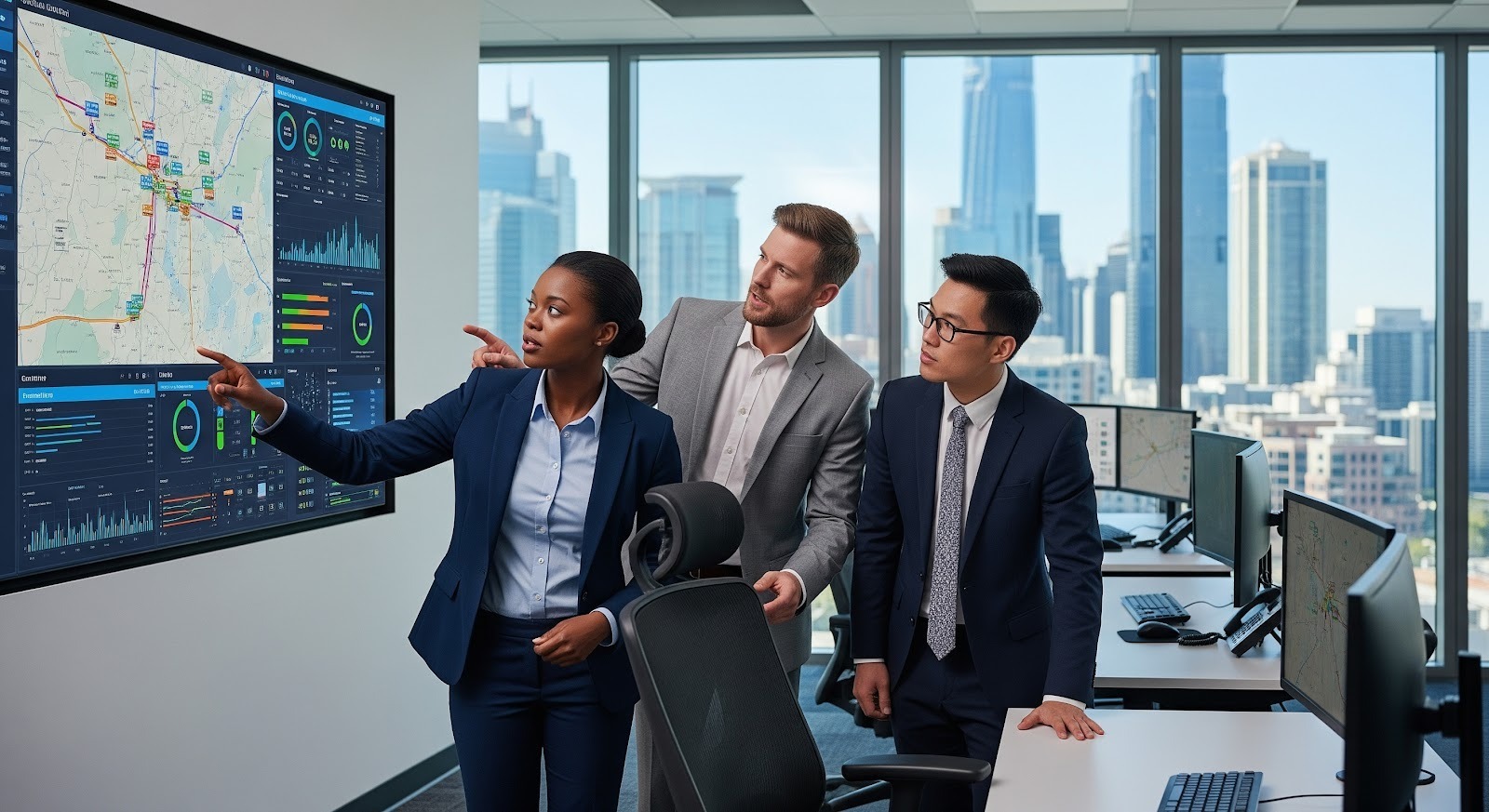Commercial Fleet Management: Strategies, Tools & Tips
Commercial fleet management plays a vital role in keeping businesses running smoothly, especially in industries like transportation, logistics, and...
Keep an eye on the road
Simplify your driver's routine
For efficient decision making
Ensure the compliance of your fleet
Simplify the daily life of your drivers
Maximize the value of your data
Unparalleled monitoring of your assets
The friendly competition that pays off
Planning powered by data
Exceed your customers' expectations
Provide better service to your users
Maximize the satisfaction of your citizens
Simplify your daily life on the construction site
Facilitate the electrification of your fleet
Our experts meet your needs
Easily meet the standards
Improve the safety of your drivers
Protect your data and your fleet
2 min read
Patrick Vallerand
Jun 11, 2024 10:43:38 PM

Ryder's report, “Electric Vehicle Total Cost to Transport Analysis,” offers a valuable and nuanced analysis of the costs of converting commercial vehicle fleets to electric vehicles (EVs). The report is an essential resource for understanding current challenges and opportunities, and underscores the urgency of reviewing and optimizing every mile of our transportation operations.
As industry leaders such as Shelly Simpson, President of J.B. Hunt, and Robert Sanchez, CEO of Ryder, have pointed out, the current business model has become obsolete. In discussions with manufacturers and visits to events, it's clear that optimizing transport operations is crucial to a successful energy transition. Gone are the days when fuel costs could simply be passed on to customers. Today, we need to rethink and optimize every aspect of the logistics chain.
A visit to the ACT Expo and the imposing presence of hydrogen demonstrate that the future of transport does not rest on a single solution. On the contrary, we're moving towards a mixed-energy park, where each type of vehicle and fuel will have its own strengths and drawbacks. This approach will ensure that the right vehicle is always used for the right application, maximizing efficiency and minimizing environmental impact.
1. Set up an energy analysis of the current fleet: It is essential to carry out a detailed analysis of the energy consumption of your current fleet. This analysis will create a baseline period, essential for measuring future improvements.
2. Select optimal recommendations: Based on the energy analysis, select the recommendations that will have the greatest impact on optimizing current operations. This includes managing driving habits, accessories, vehicle maintenance and route optimization.
3. Optimize with existing diesel trucks: Implement recommendations that are immediately applicable to your diesel trucks to achieve savings. For example, optimizing routes and managing driving habits can reduce fuel consumption and maintenance costs.
4. Identify candidates for electrification: Use the results of the analysis to select vehicles with high electrification potential. This approach enables a gradual integration of EVs into your fleet, minimizing disruption and maximizing economic benefits.
By following these steps, companies can not only reduce their ecological footprint, but also save money in the long term.
Ryder's report reminds us that the transition to electric vehicles requires a complete re-evaluation of the way we work. Speeches by Shelly Simpson and other industry leaders confirm the need for this transformation. Optimizing every kilometer we drive is key to making this transition a success. We need to adopt a flexible, hybrid approach, using the right vehicle for the right purpose, and gradually integrate clean technologies such as hydrogen and electric vehicles. By starting today, companies can not only reduce their ecological footprint, but also save money in the long term.
To read the full report, please consult the original document provided by Ryder.

Commercial fleet management plays a vital role in keeping businesses running smoothly, especially in industries like transportation, logistics, and...

In fleet management, fleet compliance services play a much bigger role than just checking a box. They’re about keeping your drivers safe, your...

Trucking has always come with its fair share of challenges, from road safety and liability issues to managing fleet efficiency. As the industry...